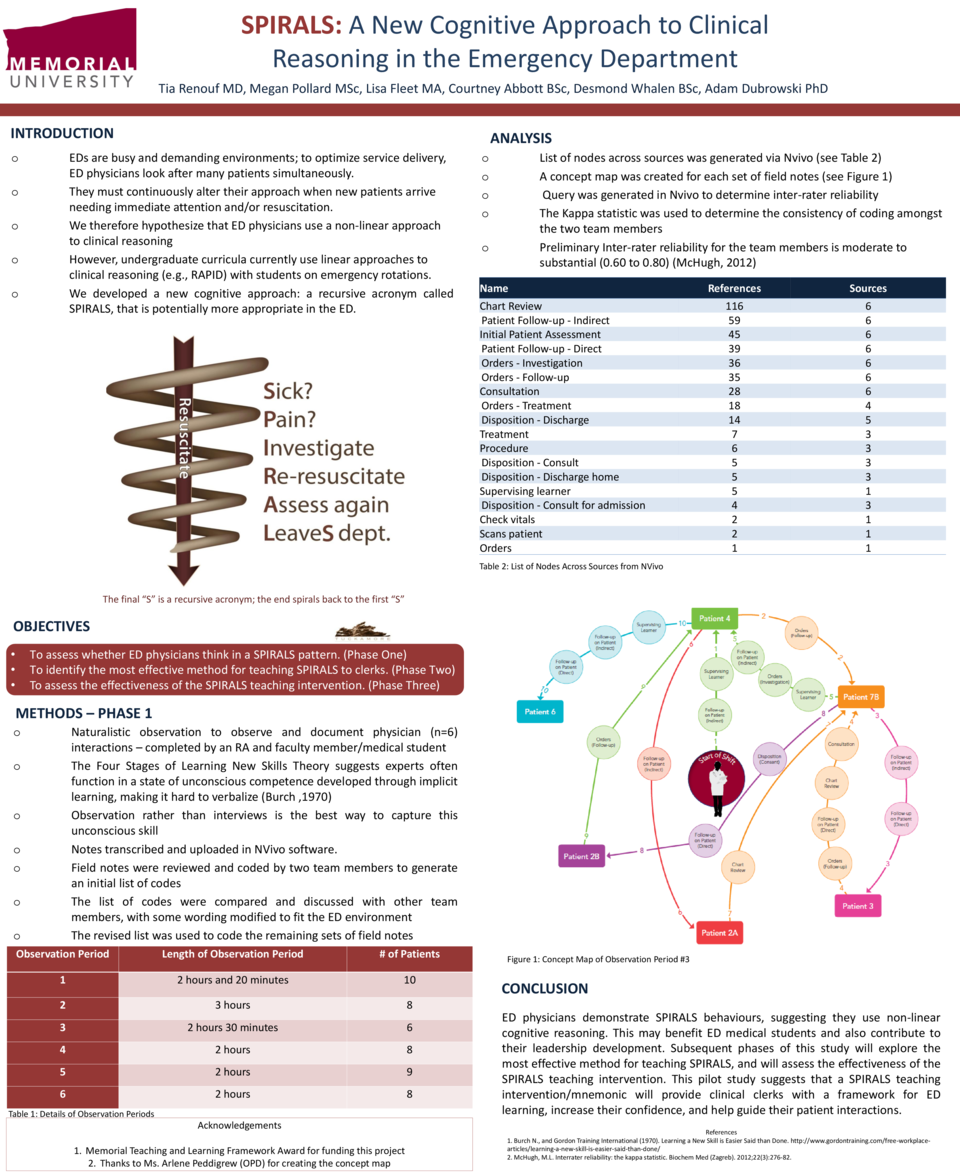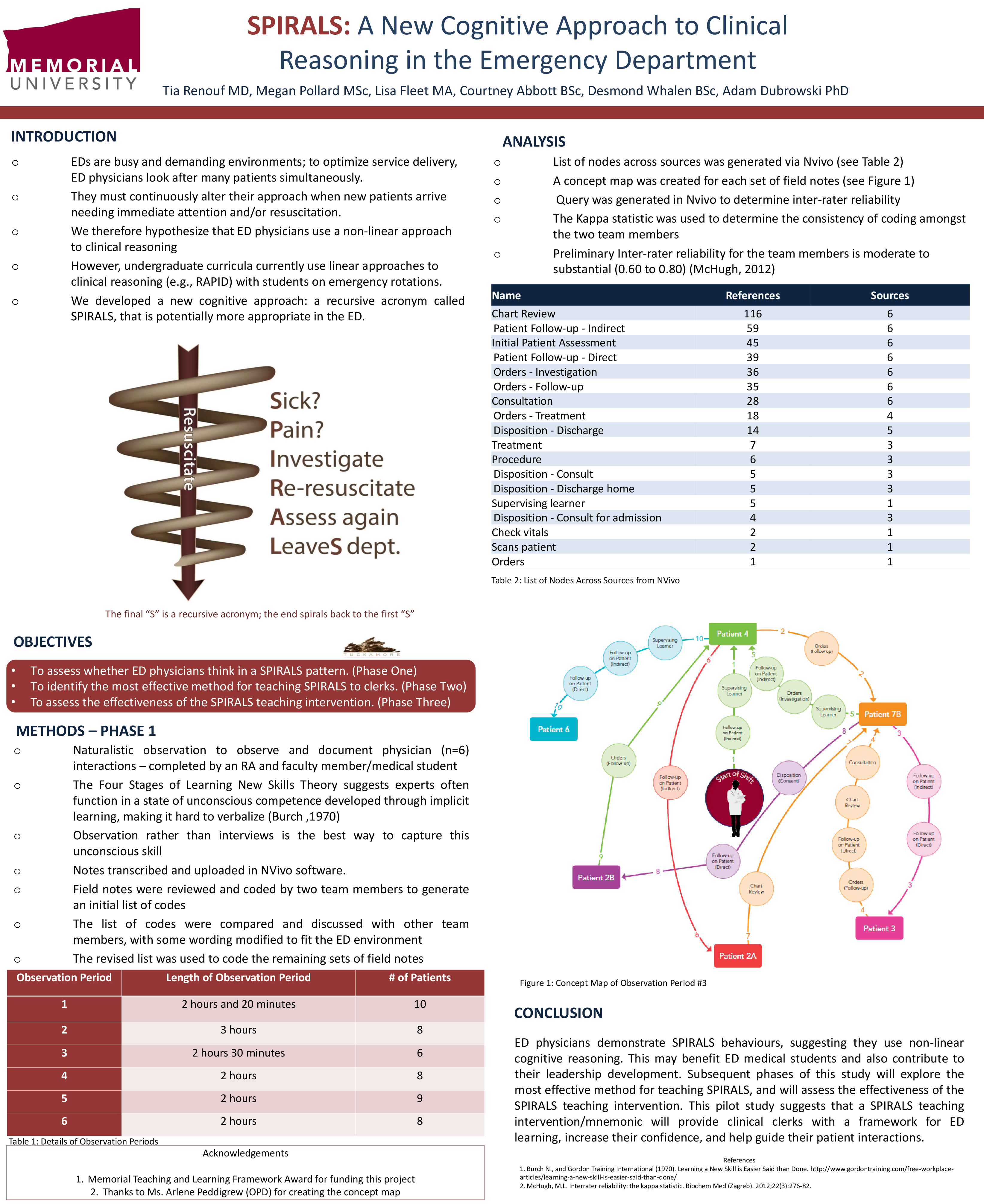Abstract
Presented at: 4th Annual Medical Education Scholarship Forum 2017, St. John's, NL
Purpose: The emergency department (ED) is a unique learning environment. Pace, cognitive load and scant clinical information mandate critical decisions with immediate consequences. Patient care constantly evolves demanding proper allocation of healthcare resources, nimble course correction and disposition. We do not prepare undergraduates for this high-paced, dynamic environment. They are taught traditional exhaustive presentations, “the laundry list”, believed to be more appropriate in clinic settings. We developed a new cognitive approach: a recursive acronym called SPIRALS (Sick, Pain, Investigate, Resuscitate, Assess Again, LeaveS ED. The final “S” spirals back to the first “S”, representing our proposed ED cognitive reasoning process) potentially more appropriate in ED than currently used static mnemonics like RAPID or SNAPPS.
Methods: Naturalistic observation of ED physicians, making notes as they follow their patients from admission to discharge (or other disposition) to observe and describe potential SPIRALS behaviours. Resulting field notes were analyzed and a concept map was created to graphically display the researcher’s observations of the ED participants’ activities.
Results: ED observation field notes documenting behaviours of n=6 physicians. Thematic analysis of content analyzed and coded by two research team members. Preliminary analysis records observations of common physician behaviors: multiple simultaneous initial patient assessments, investigations, treatments, repeated patient follow-ups, course-corrections and eventual disposition. This analysis suggests SPIRALS behaviours exist. Physicians constantly re-evaluate patients and engage with colleagues to ensure high quality patient care.
Conclusions: ED physicians demonstrate SPIRALS behaviours, suggesting they use non-linear cognitive reasoning. This may benefit ED medical students and contribute to their leadership development. Subsequent phases of this study will explore the most effective method for teaching SPIRALS, and will assess the effectiveness of the SPIRALS teaching intervention. This pilot study suggests that a SPIRALS teaching intervention/mnemonic will provide clinical clerks with a framework for ED learning, increase their confidence, and help guide their patient interactions.






